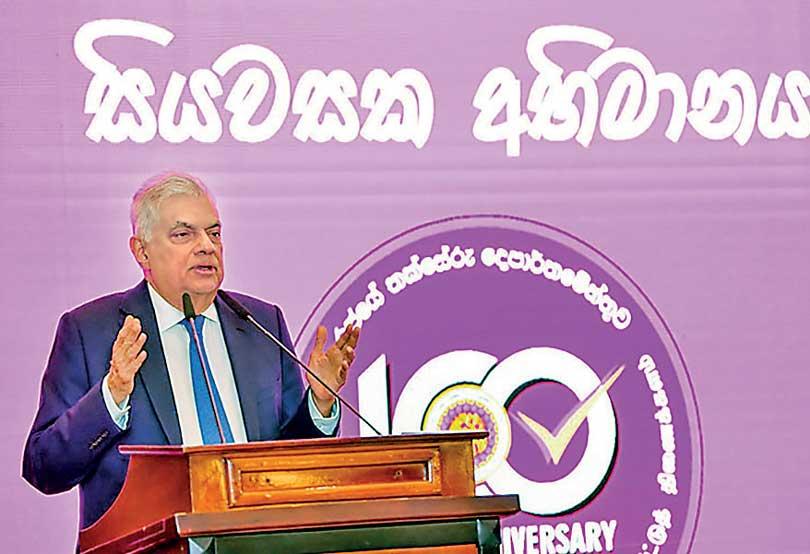07 Dec 2023 - {{hitsCtrl.values.hits}}

Ranil Wickremesinghe
President Ranil Wickremesinghe has advocated for a systematic property valuation cycle, to enhance Sri Lanka’s tax system, proposing assessments to be conducted every five years.
He expressed this stance during the centenary celebration of the Government Valuation Department.
Recognising the positive impact such assessments can have on tax collection, he commended the department’s strides in digitalisation, acknowledging the efforts made in this regard.
To reach a primary fiscal surplus of 2.3 percent of GDP by 2025, Sri Lanka has assured the International Monetary Fund (IMF) to revamp the property tax system and introduce a wealth transfer tax.
In particular, Sri Lanka is slated to introduce a nationwide real property tax and adjust the system of transfers between the central and provincial governments.
The country has also committed to introduce a gift and inheritance tax, with a tax-free allowance and minimal exemptions.
Preparatory work for these tax reforms is supposed to have commenced by mid-2023, supported by the IMF technical assistance.
Meanwhile, as Sri Lanka prepares to enter 2024 with a sense of economic improvement, following the impactful measures for revival, Wickremesinghe emphasised the importance of aligning with the emerging global trends to attain the desired development objectives.
Underscoring the necessity of adopting new economic reforms, he asserted that Sri Lanka cannot afford to steer forward with outdated systems anymore.
He emphasised that the challenges faced in recent years should not burden the next generation, underscoring that the only practical path forward is to embrace the proposed economic changes.
While highlighting the concerted efforts taken by the government to relieve the island nation from the financial distress it faced over the last 18 months, he cautioned against complacency.
Wickremesinghe warned that without prudent management of the current economic stability, the nation might face another crisis within the next decade.
He went on to advocate for a shift towards a digital economy, citing the necessity of employing modern economic methodologies and asserted the importance of having a skilled workforce in assessment within the framework of the digital economy.
24 May 2024 3 hours ago
24 May 2024 5 hours ago
24 May 2024 5 hours ago
24 May 2024 6 hours ago
24 May 2024 8 hours ago